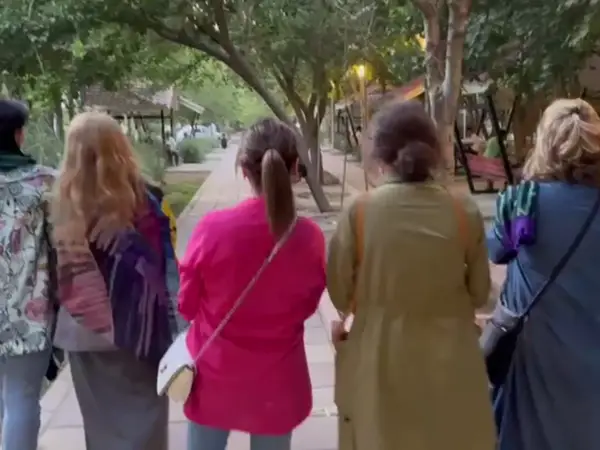Government and military officials in Iran have warned the population over disobeying hijab rules, one day after many women took off their headscarves in public.
The interior minister, Ahmad Vahidi, warned women that the government’s fearsome Special Unit will deal with those “breaking rules” and will not allow people to “intentionally cooperate with the enemy.”
The act of civil disobedience on July 12 was called by women’s rights and civic activists as authorities in recent weeks increased harassment of women in the streets for “improper hijab”. Patrols and check points by the so called ‘morality police’ were highly visible in large cities. Government agents in charge of “vice and virtue” stopped women and detained them in special police vans for questioning, warnings and even detention.
But on Tuesday large numbers of Iranian women defied forced hijab rules and came out without headscarves and in some cases dressed in attire common in most countries, such as trendy jeans and T-shirts forbidden by the Islamic Republic.
No major incidents were reported as women defied the rules, probably because the government did not want to create further tensions on that particular day, which would project the picture of a successful act of civil disobedience. But official threats rang out before the day was over and on Wednesday.
The representative of Supreme Leader Ali Khamenei in the religious city of Qom demanded decisive action against opponents of hijab. The army’s ideological-political commissar said, “Hijab is our first line of defense. If it falls, all other bulwarks will fall.”
This remark will perhaps stay as an iconic quote for a long time to come. Observers, analysts and critics have long said that the Islamic Republic uses hijab and other social restrictions, such as bans on female singers, dancing and alcoholic drinks as ways of imposing control over society.
The spokesman of the armed forces, that encompasses both the traditional army and the Revolutionary Guard, called those who do not follow hijab rules “Satan’s troops”. Speaking at a ceremony on Tuesday Abolfazl Shekarchi said these individuals are in fact engaged in ‘Moharebeh’, a serious crime according to Sharia. Moharebeh in Iran’s Islamic law means the act of taking up arms against the people, which is identical to fighting God. Being convicted of the offense could carry the death penalty.
The interior minister who had traveled to the shores of the Caspian Sea in the north also spoke about plans to segregate beaches and said the government should set up public awareness mechanisms to teach 20 million annual visitors to the resort areas about proper Islamic behavior. Almost all tourists who visit the Caspian shore are Iranians.
When the Islamic Republic imposed hijab in early 1980s, Iran had a population of around 30 million, which has grown to 80 million. The vast majority never saw the pre-1979 era when Iran had social freedoms. They only see photos or films showing women walking around in Western attire. They also have the Internet and can see the lifestyle in other countries. Many also travel abroad, or at least to neighboring countries such as Turkey, Azerbaijan and the United Arab Emirates, where they see Muslims can choose what to wear.
